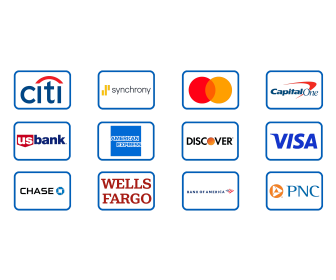Credit Cards and Taxes: What You Need to Know
Tax season can be stressful enough without wondering if paying with a credit card is a smart move. In 2025, more Americans than ever are using credit cards to cover tax bills, earn rewards, or buy themselves a little extra time before payments hit their bank accounts. But there are fees, interest, and even reporting implications you should know first. Here’s the complete breakdown of how credit cards and taxes interact — and how to use them wisely.
1. Yes, You Can Pay Taxes With a Credit Card — But It Costs You
The IRS allows payments via major credit cards through approved processors like PayUSAtax, Pay1040, and ACI Payments, Inc. Each charges a service fee — usually between 1.82% and 1.98% of the total amount. For example, if you pay a $5,000 tax bill, you’ll owe about $95 in processing fees. That might be worth it for convenience or short-term float — but not if you’re chasing small rewards.
Pro tip: Only use a credit card for taxes if your rewards exceed the processing cost or if you plan to pay the balance off immediately. Otherwise, that convenience could cost you more than the IRS penalty you’re avoiding.
2. Credit Card Rewards Aren’t Always “Free Money”
Using a rewards card to pay taxes can earn cash back, points, or miles — but the math matters. A 2% cash-back card barely breaks even against a 1.9% IRS fee, while a premium card offering 3x–5x points on general spend could yield real value. However, remember that some cards exclude “government payments” from bonus categories, counting them as standard 1x transactions.
Example: The Chase Sapphire Preferred® earns 1x on tax payments since they’re not travel or dining purchases. Meanwhile, a flat-rate card like Citi® Double Cash earns 2% everywhere, making it slightly better for this purpose.
3. Watch Out for Interest Charges
Unless you can pay your card balance in full by the next statement, your “reward” quickly disappears. With average credit card APRs above 22% in 2025, carrying that balance for even one month can wipe out your gains. Think of the IRS fee as a one-time cost, but card interest as a recurring penalty. Use a 0% introductory APR card for planned tax payments if you need short-term breathing room — but set a clear payoff schedule.
4. Can You Deduct Credit Card Fees on Taxes?
If you’re paying personal income taxes, the answer is no — IRS processing fees are not deductible. But if you’re a small business owner paying business taxes with a business credit card, those fees may count as a deductible business expense. Keep records of every payment and processing charge in case you itemize deductions later.
Always consult a certified tax professional before assuming deductions apply. Misclassifying fees can trigger IRS scrutiny or delay your refund.
5. Credit Cards and Tax Refunds
If you overpaid your taxes and expect a refund, note that the IRS won’t send it back to your credit card. Refunds are issued via direct deposit or check only. However, you can use your refund later to pay off the card balance you used for taxes — effectively turning it into a short-term float strategy.
Expert insight: If you have a large tax bill and solid credit, using a 0% APR card can effectively give you an interest-free installment plan — but only if you pay it off before the promo period ends.
6. The Bottom Line
Credit cards can be a useful tool for managing tax payments — but they’re not a shortcut. The IRS still gets paid, and you take on short-term debt plus fees. Use a credit card only when the math and timing make sense: the rewards must outweigh the costs, and your payoff plan must be airtight. If not, paying directly from your bank account is almost always cheaper and safer.
Not financial or tax advice. Tax rules and credit card terms change regularly. Always confirm current fees with the IRS and consult a licensed tax professional before making financial decisions.
Continue reading: Why Your Credit Card APR Is So High — And What You Can Negotiate · The Ultimate Comparison: Fixed Annual Fee vs. No Fee Credit Cards



